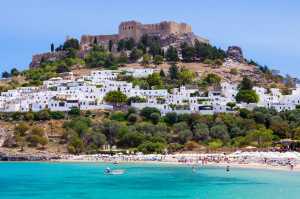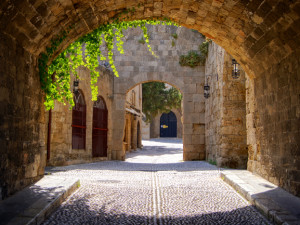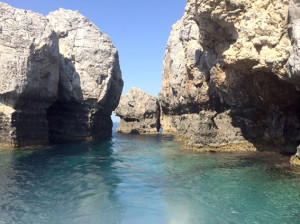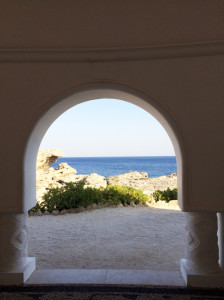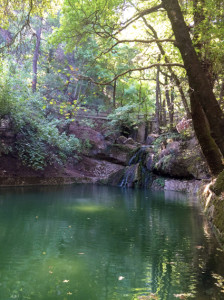Rhodes … A dream destination
Economic profile: Rhodes, a Greek island in the Mediterranean
Following the economic woes the country faced in recent years, Greece is firmly on the up when it comes to tourism. In-bound figures have reached record-breaking highs with an increase of 20% in 2014, and hotels welcomed the influx of extra arrivals by officially extending their operating season (early April – beginning of November).
Supported by the fact that tourism represents 18% of the Greek GDP – the room for growth, support and sustainability has been at the forefront of the recovery strategy.
Tourism for Rhodes is equally as important and properties on the island are finding new innovative ways to attract holidaymakers to not only enjoy their amenities, but also to support the sustainability of the island as a whole.
Rhodes … A dream destination
Rhodes is the largest island of the Dodecanese and also the capital of the region. The population of the island is 100,000 permanent residents according to 2011’s population census.
As soon as you set foot on this small island, you can feel that this place is accustomed to receiving tourists. When you visit its main city, you can explore its churches and mosques, and see that it’s a city with a really special flavour about. Wandering around its streets you are treated fairly, you feel secure and at ease with the surroundings, and importantly you really don’t feel as though the locals are there to take advantage of you as a tourist by charging over the odds. People are kind, welcoming, and used to tourists from around the globe.
The main occupation of the residents of the island is tourism-oriented, and the most developed sector is services. According to the 2011 statistics, provided by the Chamber of Commerce and Industry of the Dodecanese, the total number of registered businesses in Rhodes was 14,757, with the vast majority (5,295 companies) operating in the services sector. In the tourism sector, there are 1,920 registered companies, and the rest of them are divided between trade and manufacturing, with 3,562 and 4,020 companies respectively.
After seeing these numbers, one may think that tourism is not the main occupation of the people in Rhodes; however, it needs to be taken into consideration that most of the service-oriented companies depend on tourism. These service-based companies depend mostly on the tourists’ consumption, given the fact that Rhodes is mainly a “summer destination”. Also, the majority of these companies operate according to the island’s tourism season, meaning that they open in April and close in early October, waiting for next year when tourists will start to visit the island again.
During the economic crisis, Rhodes experienced many difficulties, with many companies going bankrupt during the years 2008 up until now. Every year since 2008 though, despite the negative vibe towards Greece, there has been a steady rate of approximately 6% per year in visitor arrivals, giving people hope and a chance for them to survive during this period of crisis.
More specifically, in Rhodes, during 2013 and 2014, and according to the Association of Greek Tourism Enterprises, there has been an even larger rise in international tourist arrivals of 9.3% between these two years.
Despite this rise, which is indeed high in a period of crisis, companies still face many difficulties, as most of the hotels have introduced “all-inclusive” packages to their clients, indirectly preventing them from eating in restaurants outside the hotel or using other facilities in general, which are not inside the hotels’ premises.










